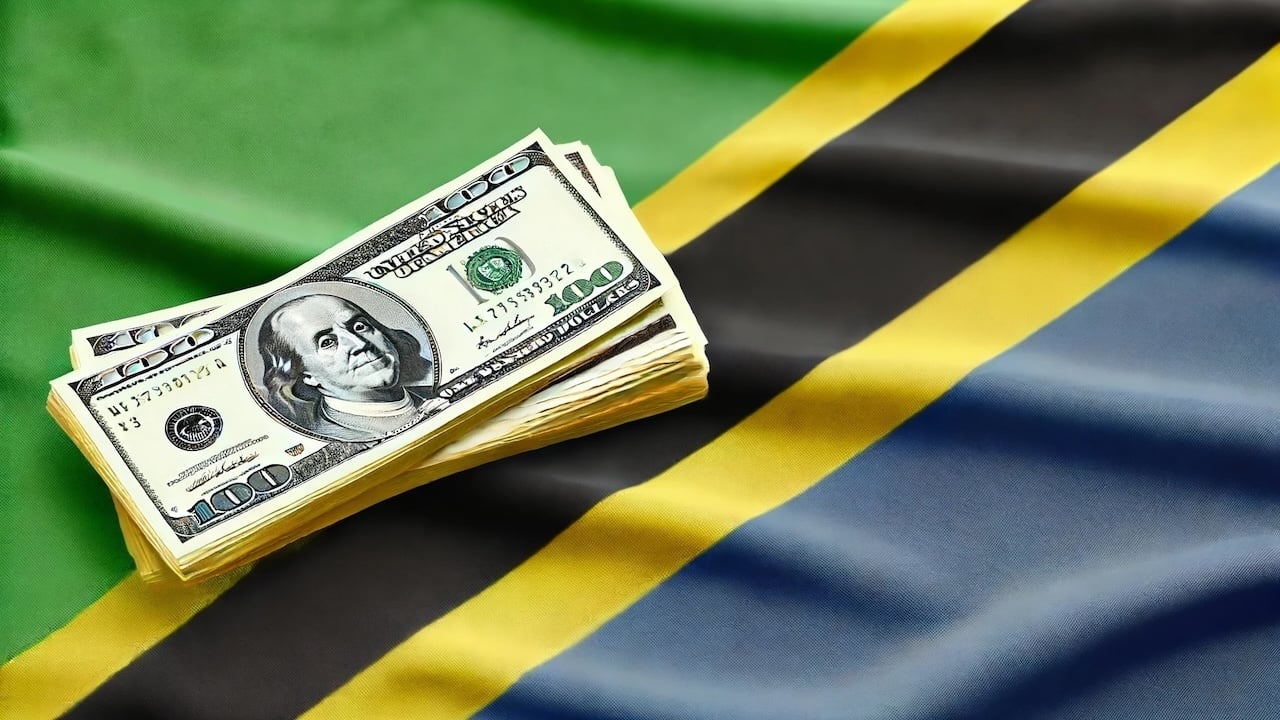(Mike Maharrey, Money Metals News Service) On June 13, Tanzania Finance Minister Dr. Mwigulu Nchemba issued a directive in an effort to curb the widespread use of the U.S. dollar in the country.
This is just one among many body blows taken by the dollar over the last several years.
The Tanzanian directive mandates that all transactions in the country must be advertised and conducted in Tanzanian shillings. It will take effect July 1.
“Henceforth, all such payments were to be made in shillings, promoting financial stability and compliance with the law.”
Visitors will be encouraged to exchange foreign currency for Tanzanian shillings to facilitate transactions that support the local economy.
Over the last several years, a growing number of institutions in Tanzania, both governmental and private, have required payments in dollars. This has led to a dollar shortage in the country.
Last month, the Tanzanian central bank began selling dollars held in its reserves to commercial banks hoping to ease a dollar shortage. The combination of a growing demand for greenbacks coupled with the shortage led to a growing black market for dollars.
During a budget speech before the Tanzanian National Assembly, Nchemba emphasized the problems with dollarization and said that it is “hindering economic progress.” He also said the situation increases “unnecessary” demand for foreign currency and that it undercut those who need dollars to import essential goods into the country.
It remains unclear how effective the directive will be. It is already technically illegal under the Bank of Tanzania Act of 2006. The law designates the Tanzanian schilling as the sole legal tender for domestic payments. The new directive likely indicates increased enforcement efforts on the horizon.
Dollar Death By a Thousand Paper Cuts
De-dollarization in Tanzania won’t have much impact on the trajectory of the U.S. dollar, but it is indicative of a growing global trend – more and more countries are spurning the greenback.
The greenback is falling as a share of global reserves as many countries attempt to diversify away from the greenback. America’s use of the dollar as a foreign policy weapon has the leaders of many countries on edge.
The U.S. and other Western countries aggressively sanctioned Russia in the wake of its invasion of Ukraine.
America and her allies locked Russia out of the SWIFT financial system and froze around $300 billion in Russian central bank assets.
Other countries took notice.
Consider this – if you recognize something makes you vulnerable, what do you do?
You likely take steps to eliminate or at least minimize that vulnerability.
So, if you’re worried that the U.S. and its allies might cut off your access to dollars, what would you do?
Minimize your dependence on dollars. In other words, if you are concerned that the U.S. could pull the “dollar rug” out from under you, why not pull out from the dollar system first?
Meanwhile, countries such as Tanzania are attempting to minimize reliance on the dollar to boost their own currencies and foster economic independence.
And earlier this month, a 50-year-old agreement between the U.S. and Saudi Arabia supporting the petrodollar was allowed to expire. The end of the agreement doesn’t mean Saudi Arabia will stop accepting dollars for oil, and there are plenty of other influential players in the mix that will likely continue to rely on the greenback. But the expiration of the agreement opens the door for oil sales in other currencies, including the Chinese yuan. And if the Saudis move away from the dollar, other countries will likely follow suit.
The rise of BRICS will also undercut dollar dominance.
BRICS is an economic cooperation bloc originally made up of Brazil, Russia, India, China, and South Africa. As of Jan. 1, 2024, the bloc expanded to include Saudi Arabia, Egypt, the UAE, Iran, and Ethiopia. More than 40 other nations have expressed interest in BRICS membership.
During the Montreal Conference of the International Economic Forum of the Americas, 3Sixty Strategic Advisors Ltd. managing director Ali Borhani bluntly pointed out that people must recognize the world has changed.
“Half of the world population is in BRICS+. Two-thirds of world trade happens in BRICS+. BRICS are adding 74 million consumers a year. That is two times Canada out of these markets. The largest buyers of energy and the largest sellers of energy happen to be in the Global South and among BRICS. So, we’re looking at the rewiring of energy, finance, supply chain, and tech.”
None of this means the dollar is on the verge of collapse. But it could ultimately die the death of a million paper cuts.
While the dollar will likely remain the global reserve currency for the foreseeable future (After all, it is the cleanest dirty shirt in the laundry hamper), it’s clear the world is moving toward a “multipolar” system with several currencies competing and sharing a reserve role. This will necessarily diminish the role of the dollar.
Many analysts believe gold will have an increasingly important role in this multipolar world. After all, it is one of the most liquid monetary assets. It can easily be traded for any currency.
In a report published by Kitco News, Reporter Neils Christensen argued that these geopolitical shifts and the erosion of the dollar make it easy to make a case for gold as a global currency.
“So it’s not just China that is going to have to buy more gold; nations around the world, especially those in emerging markets that have relied so heavily on the U.S. dollar, will have to rebuild their gold reserves.”
Mike Maharrey is a journalist and market analyst for MoneyMetals.com with over a decade of experience in precious metals. He holds a BS in accounting from the University of Kentucky and a BA in journalism from the University of South Florida.

